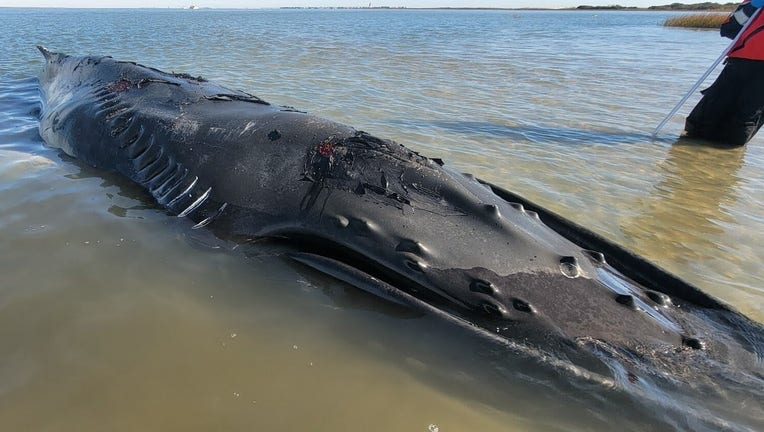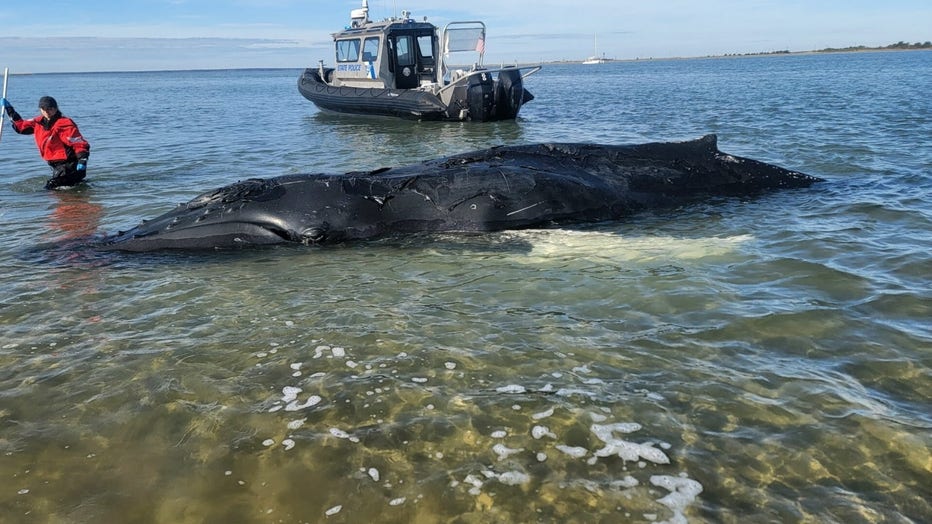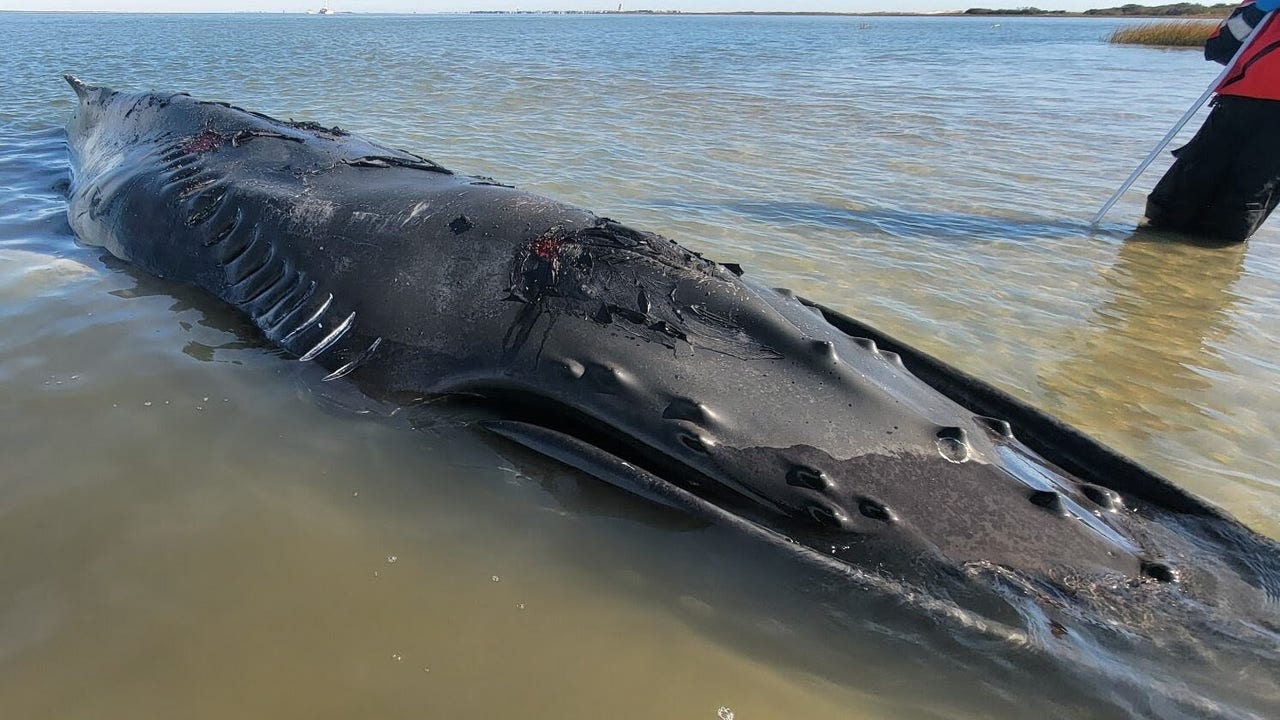 article
article
Young humpback whale dies after stranding off Long Beach Island, officials say. Photo: Marine Mammal Stranding Center (MMSC)
LONG BEACH ISLAND, N.J. – A young humpback whale discovered stranded in shallow water off Holgate, New Jersey, has died after rescue crews determined the animal was too weak and injured to survive, according to the Marine Mammal Stranding Center (MMSC).
What we know:
The MMSC received a report around 3 p.m. Friday, Oct.17, from the New Jersey Department of Environmental Protection that an aerial survey team had spotted a whale in distress off the west side of Holgate, near the southern tip of Long Beach Island.
The center contacted the U.S. Coast Guard Air Station Atlantic City for assistance, and a Coast Guard helicopter located the whale shortly before sunset. It appeared to be beached on a sandbar, only accessible by boat. Operations were postponed until daylight due to fading visibility, according to a Facebook post by MMSC.
By Saturday morning, a New Jersey State Police Marine Unit transported MMSC’s stranding team to the site, where they identified the animal as a juvenile humpback measuring about 29 feet long. Crews found the whale lethargic and severely underweight, with healing propeller wounds across both sides of its dorsal region.

Young humpback whale dies after stranding off Long Beach Island, officials say. Photo: Marine Mammal Stranding Center (MMSC)
When traditional euthanasia solutions are used on stranded whales, the body must later be removed and properly disposed of, as the chemical agents make the tissues highly toxic to the environment and to scavenging animals. However, recent beach erosion along the Holgate shoreline left no available landing sites for a safe removal, meaning responders had to consider alternative methods.
How did the whale die?
After a medical assessment, experts determined the whale’s prognosis was extremely poor and planned to humanely euthanize the animal to prevent further suffering. However, high tide and fading daylight made it unsafe to complete the procedure. Sedatives were administered to keep the whale calm overnight as crews continued monitoring with support from the Atlantic Marine Conservation Society and New Jersey Fish & Wildlife Conservation Officers.
On Sunday morning, a Sea Tow Atlantic City vessel checked the site shortly after high tide and found that the whale had died overnight.
The whale was later identified by Gotham Whale as NYCO476, first sighted Oct. 2 in the New York Bight by American Princess Cruises. At that time, researchers noted the whale’s healing propeller injuries and its difficulty feeding due to its weakened state.
“The ones that hit the hardest are animals like this young whale who never got the chance to contribute to their species,” the MMSC said in a statement.
What’s next:
The Marine Mammal Stranding Center says additional details will be shared as they become available through its Media Center.
The Source: This information was gathered from the Marine Mammal Stranding Center.

